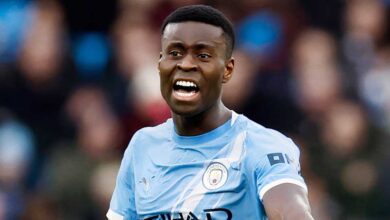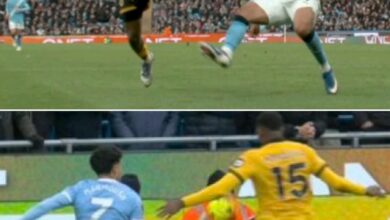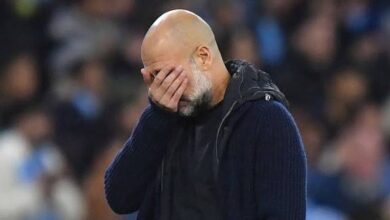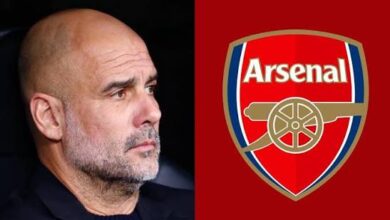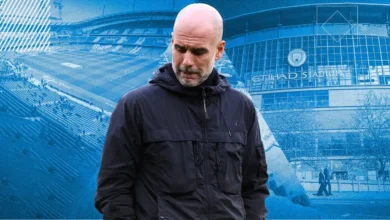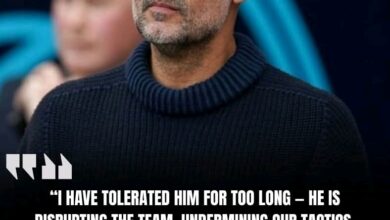Roy Keane Finally Settles 15-Year Feud With Liverpool Hero He Refused to Speak to
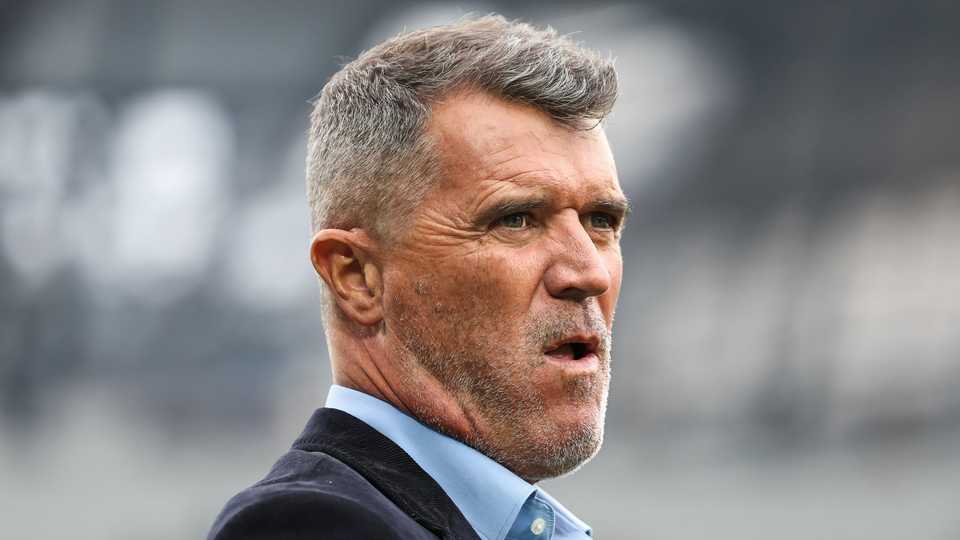
For years, there was silence between them. The kind of silence that holds anger, pride, and memories that refuse to fade. Roy Keane and Jason McAteer — two men who once wore the same green shirt, who once stood side by side singing Ireland’s anthem, but who later became enemies. It was not a small misunderstanding. It was a storm that lasted fifteen years, fed by old grudges, sharp words, and the type of pride only footballers like Keane carry. But now, something unbelievable has happened. After decades of tension, the fire has cooled. The war that started on the pitch has finally ended off it. And for fans who remember their clashes, this story feels like football’s version of peace after chaos.
It started long before the cameras caught them shouting. Roy Keane, the captain of Manchester United, was never the man to smile on a football field. He played like a soldier who hated losing more than he loved winning. His face, always serious. His tackles, always fierce. He didn’t play for joy — he played for dominance. On the other side was Jason McAteer, the stylish and outspoken midfielder who played for Liverpool and later Sunderland. He had flair, jokes, charm — the kind of man who loved football and nightlife in equal measure. Their worlds were different, their temperaments clashed, and soon, so did they.
Their rivalry didn’t start with punches or fouls. It began with looks, words, and tension whenever Ireland trained together. Keane saw McAteer as unserious, someone who cared too much about hair gel and not enough about football. McAteer, on the other hand, saw Keane as arrogant — too proud to respect anyone who didn’t live and think like him. Then came 2002 — the year everything exploded. Ireland were preparing for the World Cup, a moment that should have united the nation. But instead, it became one of the most controversial stories in Irish football history. Keane walked out of the team after a major fallout with manager Mick McCarthy in Saipan. McAteer, like many others, didn’t agree with how Keane handled it. Lines were drawn. Camps were formed. Keane versus McAteer became more than a football rivalry — it was a clash of values, of loyalty, of ego.
From that moment, there was no peace. Every time they met on the pitch after that, you could feel the electricity. One of the most famous moments came in 2002, during a Premier League match between Sunderland and Manchester United. The game was intense, the tackles were heavy, and the tension was clear. In the middle of the field, Keane and McAteer went for the same ball. They collided, hard. Both fell. McAteer got up, said something sharp, and Keane’s temper exploded. Cameras caught the words — McAteer shouting “F*** off!” and Keane losing control. He was later sent off for a rough challenge on his compatriot. It wasn’t just a football incident — it was personal. It was history boiling over.
After the game, Keane didn’t stay quiet. In his autobiography, he described McAteer as “too fond of himself, more interested in hair gel and nightclubs than football.” For Keane, that was his way of saying McAteer lacked focus. But those words burned deep. McAteer didn’t forget them. He replied years later, saying he didn’t lose sleep over what Keane thought, but the truth was, both men carried that bitterness inside. Every time they crossed paths, the air turned cold. Keane would look away. McAteer would force a smile that wasn’t real. They had gone from teammates to strangers.
Years passed. Keane retired. McAteer moved into punditry and ambassadorial roles. They aged, but the distance stayed. McAteer once told a story that summed up the bitterness perfectly. He said he saw Keane at Wembley during a cup final. McAteer opened the door for him — just a small gesture, a chance for peace. But Keane walked past without even saying hello. Not a word. Not even a nod. It was as if 15 years of friendship, training, sweat, and memories meant nothing. McAteer said it hurt him more than he expected. “He could’ve just said hello,” he said once, “but he didn’t want to know.” That’s how far the feud had gone — beyond football, beyond logic.
Still, deep down, both men shared something powerful. They were warriors from the same battlefield. They had both worn the Irish badge. They had bled for it. And no matter how much pride stood between them, that connection could never truly be broken. Sometimes time itself has a way of softening even the hardest hearts. And time, it seems, finally worked its magic.
It happened quietly — no cameras, no reporters, no viral moments. Just two old rivals meeting again after too many years. McAteer later revealed it with emotion in his voice. “Something happened a few months ago,” he said. “And I’d like to think we’re in a better place now.” His voice broke slightly as he spoke. It wasn’t easy for him. Fifteen years of silence doesn’t disappear overnight. But what touched people most was how honest he was. He said, “I found it really difficult to keep my emotions in check when we came together. Something positive came out of it. I just thought 15 years wasted was far too long.”
Those were words soaked in regret — the kind of regret only maturity brings. When you’re young, you fight for pride. When you grow older, you realize peace is a better victory. McAteer even admitted that deep down, he always respected Keane. He said, “We shared good times, we shared bad times, we shared rivalry. I totally understand where he comes from. He’s a winner. I was a winner too — just in different ways.” That last line said everything. Keane fought through fear and fury. McAteer fought through heart and humor. But both wanted to win. That was their connection all along.
To fans who grew up in that era, the idea of Keane and McAteer shaking hands again feels almost unreal. These were two men whose names were mentioned in the same breath as “feud,” “fight,” and “fire.” Keane wasn’t just a hard man — he was *the* hard man of football. He terrified opponents, barked at teammates, and refused to accept weakness. McAteer was different — confident, playful, but proud in his own way. That clash of personalities was always going to explode at some point. But no one expected it to last this long.
It makes you think about football in a deeper way. Behind the tackles, behind the glory, there are human emotions — grudges, misunderstandings, ego, and hurt. Sometimes, it takes decades for men to heal from moments like that. Maybe that’s why McAteer’s words sounded so heavy. “I just thought 15 years wasted was far too long,” he repeated. That’s the sound of someone who finally let go.
Keane, for his part, hasn’t said much publicly about the reunion. But if there’s one thing about him, it’s that he doesn’t forgive easily — and when he does, it means something. Those who know Keane say he has mellowed in recent years. As a pundit, he still carries that fire, that sharp tongue. But away from the camera, he’s more reflective. Maybe time has shown him that even the fiercest battles eventually fade, and the people you fought are the same ones who shared your greatest memories.
Their story is more than just a feud. It’s a mirror of football itself — passion, pride, pain, and redemption. Keane and McAteer represent two sides of the same Irish coin. One was pure steel, the other pure spirit. And now, after all the shouting and all the silence, they’ve found common ground again. Maybe not best friends, but no longer enemies. Just two men who once fought too hard and learned, finally, that peace is worth more than victory.
Fans who remember their clashes can’t forget the famous scenes — Keane’s red card, Beckham’s smirk, the chaos at the Stadium of Light. Those moments live forever in highlight reels, but what matters now is what happened behind closed doors. When they finally met, face to face, and decided to let go. McAteer said he felt emotional, almost overwhelmed. He realized how much time had gone, how many years were lost to pride. But he also realized something else — that forgiveness isn’t weakness. It’s freedom.
He ended his reflection with words that carried real humility. “I hold him in such high esteem as a professional footballer, as an athlete,” McAteer said. “I’m glad our relationship is in a better place.” That was it — no drama, no headlines. Just two men finally understanding each other after twenty years of misunderstanding. It’s the kind of ending you rarely get in football, where grudges often last a lifetime.
If you look back at the seven matches they played against each other — from Liverpool versus Manchester United to Sunderland versus United — Keane never lost. Seven games, zero defeats. For Keane, dominance was everything. But even he would admit that true victory sometimes comes later, when you find peace with your past. That’s what this reunion symbolizes — not a handshake, but a surrender of ego. After all, they shared history no one else can understand — training camps, World Cup qualifiers, heartbreaks, and triumphs. Even the fiercest enemies once shared laughter in the same dressing room.
In the end, football is just a game, but what it leaves behind are human stories like this — full of heat, pain, and healing. Roy Keane will always be the warrior, the enforcer, the man who refused to lose. Jason McAteer will always be the fighter with flair, the one who smiled through it all. Together, they represent everything beautiful and brutal about football. And now, at last, their story has peace.
Maybe, one day, we’ll see them together again — not as rivals, but as old friends laughing about the past. Maybe McAteer will tell Keane, “You still owe me an apology,” and Keane will smirk, say nothing, and that silence will mean everything. Because sometimes, forgiveness doesn’t need words. It just needs time.






